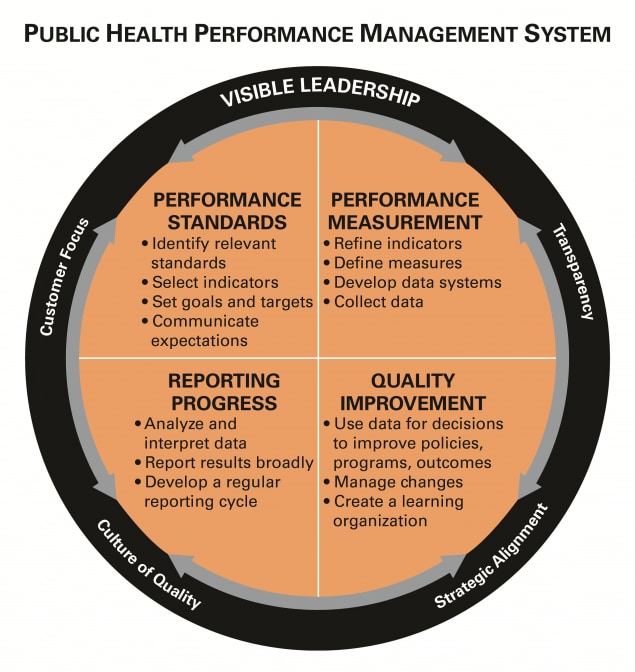At a glance
In the public health field, many initiatives and organizations focus on improving public health practice, using different terms. This page provides common definitions for public health performance management.

Definitions and concepts

There has been a rapidly growing interest in performance and quality improvement within the public health community, and different names and labels are often used to describe similar concepts or activities. Other sectors, such as industry and hospitals, have embraced a diverse and evolving set of terms but which generally have the same principles at heart (i.e., continuous quality improvement, quality improvement, performance improvement, six sigma, and total quality management).
In the public health field, an array of initiatives has set the stage for attention to improving public health practice, using assorted terms. The Turning Point Collaborative focused on performance management, the National Public Health Performance Standards Program created a framework to assess and improve public health systems, while the US Department of Health and Human Services has provided recommendations on how to achieve quality in healthcare. In 2011, the Public Health Accreditation Board launched a national voluntary accreditation program that catalyzes quality improvement but also acknowledges the importance of performance management within public health agencies. Regardless of the terminology, a common thread has emerged—one that focuses on continuous improvement and operational excellence within public health programs, agencies, and the public health system.
To anchor common thinking, below are links to some of the definitions that are frequently used throughout these pages.
